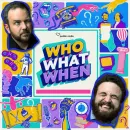When the COVID-19 pandemic reached the small, rural town of Kingstree, South Carolina, Sandra Epps watched her tight-knit community grapple with the devastating disease. Before long, several of her own friends had lost their lives to the virus.
“It was heartbreaking,” Epps said. “It just impacts you in a lot of ways.”
Epps decided to get tested for COVID-19 after realizing she had mild symptoms. She was tested through the Medical University of South Carolina and was contacted immediately about her positive result. Along with the information about her test result, Epps was given the option to be monitored remotely by nurses located at MUSC.
Remote patient monitoring is a virtual care program that allows patients to be monitored through telehealth, while they stay in the comfort of their own home. By logging on to her patient portal, MyChart, Epps could answer questions about her symptoms. Nurses would contact her by phone or email to check in, give advice, and provide reassurance. Epps said the monitoring program made her “feel safe.”
“I was reassured and I wasn’t as frightened,” Epps said.
The novel coronavirus pandemic, which has killed more than 7,800 people in South Carolina, led many healthcare systems to adopt remote patient-monitoring models in an effort to keep hospitals from being overwhelmed.
For patients, remote patient-monitoring allows nurses to monitor symptoms closely and react quickly if needed, according to Dr. Marty Player, Associate Professor of Family Medicine and Co-director of Primary Care, Telemedicine at MUSC.
“We’re keeping contact and accountability with our patients in a much more timely way,” Dr. Player said.
Knowing that a caregiver is accessible has eased patients’ anxiety, he added.
Many of the patients who have been monitored remotely have said the virtual program prevented them from visiting the Emergency Department or an Urgent Care, according to David Wheeler, telehealth patient and provider experience coordinator at the MUSC Center for Telehealth.
“They were able to get through any kind of crisis or spike (in their illness),” Wheeler said. We were able to shepherd them through that.”






